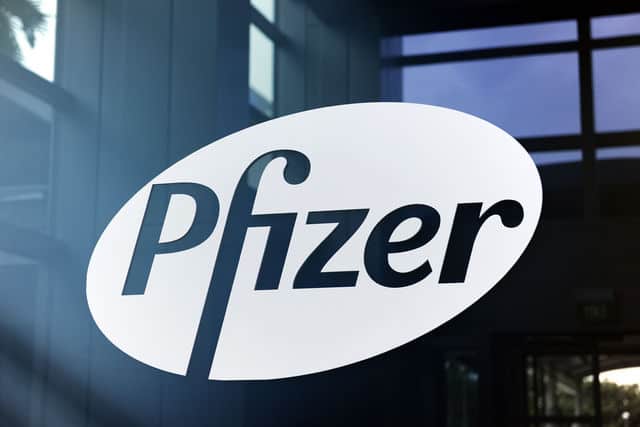
MSF hits out at ‘astronomical’ vaccine prices
pharmafile | January 20, 2015 | News story | Research and Development, Sales and Marketing | Doctors Without Borders, GSK, Médicines San Frontières, Pfizer, Vaccine, diphtheria, measles, pertussis, poliomyelitis, tetanus, tuberculosis
Pharma companies have been named and shamed in a report calling on manufacturers to lower the cost of childhood vaccines and make them more accessible in developing countries.
The international medical aid charity Médicines San Frontières (Doctors Without Borders) found “a handful of big pharma companies” – including GSK and Pfizer – are charging developing countries ‘astronomical prices’ for the pneumococcal vaccines from which they have registered huge profits.
Their report found that using the yearly lowest publicly published prices, in 2001 it cost a minimum of £0.44 (US$ 0.67) to immunise a child against six diseases (tuberculosis, measles, diphtheria, tetanus, pertussis and poliomyelitis).
However, in 2014 it cost a maximum of £30 (US$ 45.59) to immunise a child against 12 diseases (tuberculosis, measles, rubella, diphtheria, tetanus, pertussis, hepatitis B, Haemophilus influenza type b, poliomyelitis, pneumococcal diseases, rotavirus and human papillomavirus for adolescent girls).
“So while the number of diseases against which a child is immunised has doubled between 2001 and 2014, the cost of the vaccines package to fully immunise a child has disproportionately multiplied 68-fold,” the report finds.
The pneumococcal vaccine accounts for around 45% of the total cost to vaccinate a child today in the poorest countries. Pneumococcal disease kills about one million children each year. MSF says more than a third of the $7.5 billion donated globally by organisations such as Gavi will be spent on the pneumococcal vaccine alone.
The charity is urging GSK and Pfizer – UK and global manufacturers of pneumococcal vaccines who have collectively reported over $19 billion in sales globally for the pneumococcal vaccine – to reduce the price to $5 (just over £3) per child for all three doses.
This would be only slightly less than the $6 (£4) price target announced by the Indian manufacturer Serum Institute for a version it plans to bring to market over the next few years.
“The price to fully vaccinate a child is 68 times more expensive than it was just over a decade ago, mainly because a handful of big pharmaceutical companies are overcharging donors and developing countries for vaccines that already earn them billions of dollars in wealthy countries,” says Rohit Malpani, director of policy and analysis for MSF.
“We think it’s time for GSK and Pfizer to do their part to make vaccines more affordable for countries in the long term, because the discounts the companies are offering today are just not good enough.”
Kate Elder, a vaccines policy advisor at MSF adds: “Because of the astronomical cost of new vaccines, many governments are facing tough choices about which deadly diseases they can afford to protect their children against.”
GSK and Pfizer both said the high cost of R&D prevented them from offering further cost reductions. In a statement GSK insists that its pneumococcal vaccine is supplied to developing countries ‘at a substantial discount to western prices’.
“We offer our lowest prices to Gavi and UNICEF which can be as little as a tenth of developed world prices. Many of our available vaccines are advanced and complex and require significant upfront capital investment to make and supply.
“Our pneumococcal vaccine is one of the most complex we’ve ever manufactured, essentially combining 10 vaccines in one. For Gavi-eligible countries, we are providing this vaccine at a deeply discounted price. At this level, we are able to just cover our costs. To discount it further would threaten our ability to supply it to these countries in the long-term.
“Nevertheless, we continue to look at ways to reduce production costs and any savings we make we would pass on to Gavi.”
Pfizer says it has negotiated a deal to provide its pneumococcal vaccine Prevenar 13 at a reduced price to certain developing countries in the Gavi alliance until 2025, which “gives countries the best chance of maintaining their pneumococcal vaccination programs and sustaining the significant public health gains these programs provide”.
It adds in a statement: “The price of Prevenar 13 reflects the fact that it is one of the most complex biologic products ever developed and manufactured. For example, each one of the 13 individual components (13 serotypes of the pneumococcal bacteria, which cause pneumococcal disease) requires a separate process for purification, conjugation and testing.
“It takes more than two years to create one batch of Prevenar 13, encompassing some 500 separate quality control tests prior to product release and distribution, multiple facilities and hundreds of trained professionals.”
Research by the International Federation of Pharmaceutical Manufacturers and ssociations says that compared to other government interventions – including other interventions in health – the cost-effectiveness of most vaccines is ‘exceptionally high’.
Lilian Anekwe
Related Content

GSK shares results from phase 3 trial for gonorrhoea treatment
GSK has announced positive results from its phase 3 EAGLE-1 trial for gepotidacin, a potential …

GSK’s meningococcal vaccine candidate accepted for FDA review
GSK has announced that the US Food and Drug Administration (FDA) has accepted for review …

GSK shares data from phase 3 trial for Jemperli combinations for endometrial cancer treatment
GSK has announced positive results from part 1 and part 2 of its RUBY/ENGOT-EN6/GOG3031/NSGO phase …







